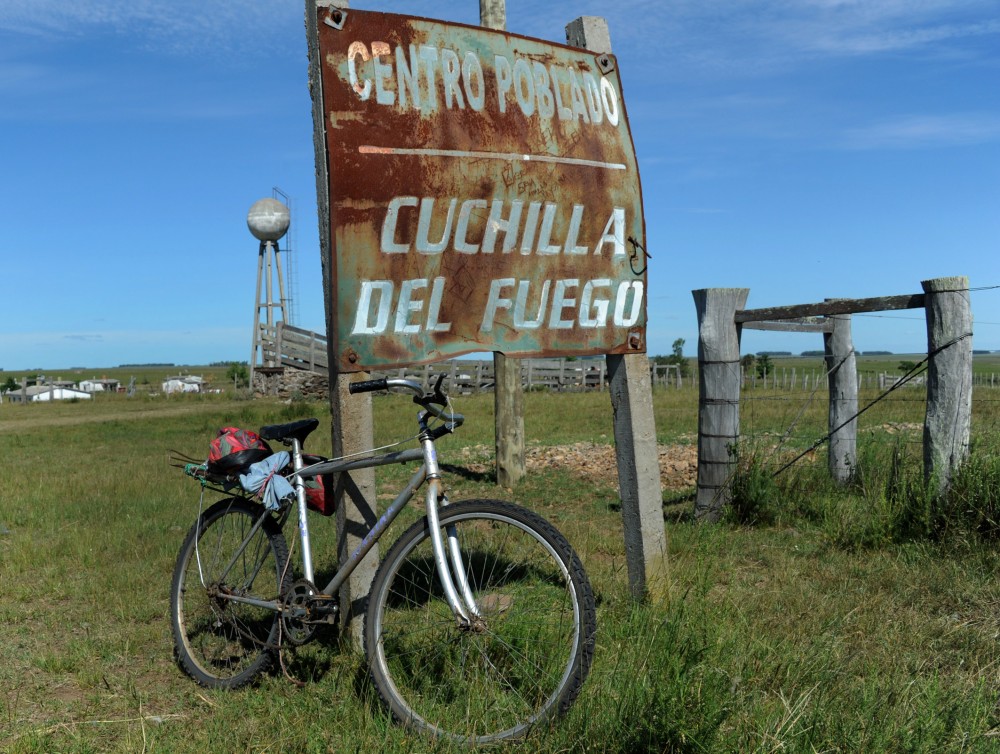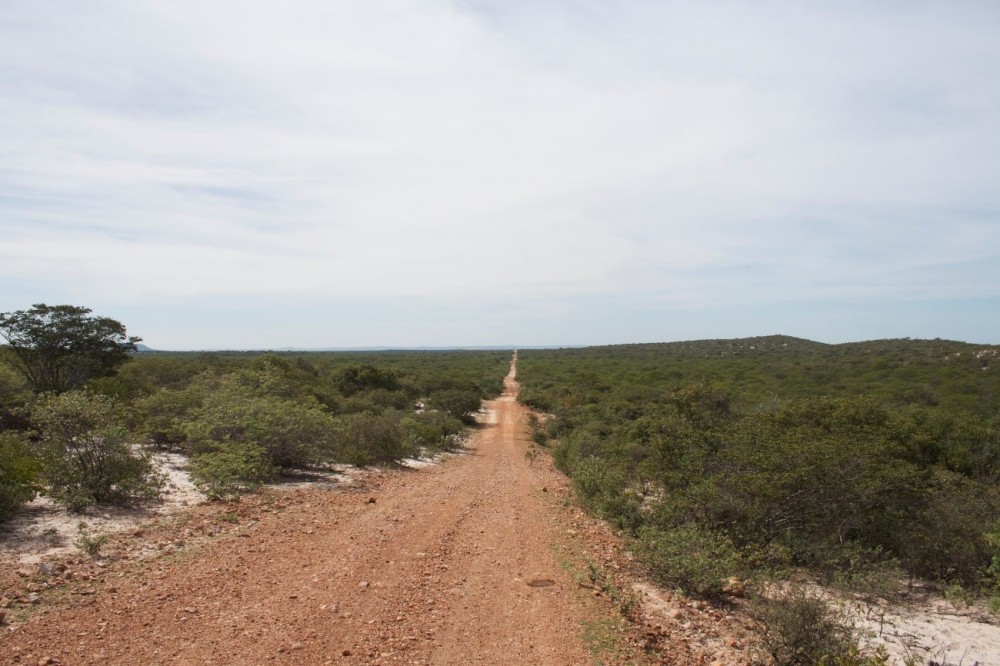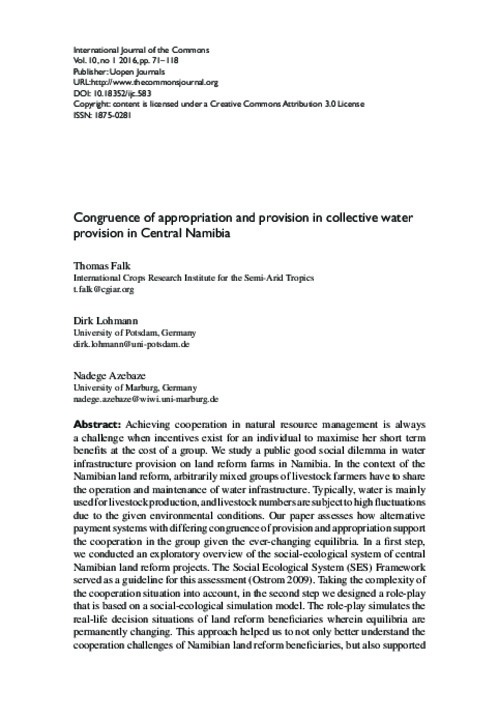parcours
AGROVOC URI:
Evaluation of effects of agri-environmental measures on rangeland degradation in two less favoured areas in Portugal
Evaluation of effects of agri-environmental measures on rangeland degradation in two less-favoured areas in Portugal
Nadia Manuela Jones
Acceso a los campos públicos en la Cuchilla del Fuego
La historia del acceso a la tierra de esta Cooperativa es la historia de la negación de la demanda de tierra de los sectores populares de la microrregión de Guichón.El acceso campo fue de forma precaria en régimen de pastoreo. En ese momento solo 20 de los socios poseían alguna cantidad de animales vacunos, otros integrantes querían producir miel y otros trabajar en eco-turismo.
Areia Grande: A luta no sertão baiano é pelo Fundo de Pasto!
Areia Grande é o atual nome de um antigo território de “fundo de pasto”, no município de Casa Nova – Bahia. O nome foi dado por 366 famílias de quatro comunidades das caatingas ao norte do Lago de Sobradinho: Riacho Grande, Salina da Brinca, Jurema e Melancia. As famílias vivem tradicionalmente da agricultura de subsistência, criação de caprinos, ovinos e bovinos [...]
Monitoring Effects of Land Cover Change on Biophysical Drivers in Rangelands Using Albedo
This paper explores the relationship between land cover change and albedo, recognized as a regulating ecosystems service. Trends and relationships between land cover change and surface albedo were quantified to characterise catchment water and carbon fluxes, through respectively evapotranspiration (ET) and net primary production (NPP). Moderate resolution imaging spectroradiometer (MODIS) and Landsat satellite data were used to describe trends at catchment and land cover change trajectory level. Peak season albedo was computed to reduce seasonal effects.
Congruence of appropriation and provision in collective water provision in Central Namibia
Achieving cooperation in natural resource management is always
a challenge when incentives exist for an individual to maximise her short term
benefits at the cost of a group. We study a public good social dilemma in water
infrastructure provision on land reform farms in Namibia. In the context of the
Namibian land reform, arbitrarily mixed groups of livestock farmers have to share
the operation and maintenance of water infrastructure. Typically, water is mainly
used for livestock production, and livestock numbers are subject to high fluctuations
Making rangelands secure: Past experience and future options
Significant progress has been made over the past decade or so in the development of policy and legislation that support the recognition of customary rights to land, with important legal rulings in Tanzania, Uganda, Mozambique, South Sudan, and South Africa. At the same time, the strengthening of communities’ traditional rights to use resources has progressed through community forest reserves and community conservation areas.
Rangelands: Pastoralists Do Plan! Community-Led Land Use Planning in the Pastoral Areas of Ethiopia
The Government of Ethiopia and more specifically, the Rural Land Administration and Use Directorate, (RLAUD) has identified land use planning as an important tool for the sustainable development of the country. Land use planning is vital for optimising the use of the land and for reconciling conflicts between different land uses. Land use planning should be carried out at different levels – from national to regional to local including community: these different levels should support and integrate with each other.
Rangelands: Improving the Implementation of Land Policy and Legislation in Pastoral Areas of Tanzania: Experiences of Joint Village Land Use Agreements and Planning
Resilience-building planning in drylands requires a participatory, integrated approach that incorporates issues of scale (often large scale) and the interconnectedness of dryland ecological and social systems. In an often political environment that supports small, “manageable” administrative units and the decentralisation of power and resources to them, planning at large scale is particularly challenging; development agents in particular may find it difficult to work across administrative boundaries and/or collaboratively.
Rangelands: Making Rangelands More Secure in Cameroon: A Review of Good Practice
Rangelands cover a surface area of more than 2 million hectares in Cameroon. Despite their relatively unpredictable climate and unproductive nature they provide a wide variety of goods and services including forage for livestock, habitat for wildlife, water and minerals, woody products, recreational services, nature conservation as well as acting as carbon sinks. Rangelands in Cameroon are predominantly grassland savanna with three types distinguishable: the Guinean savanna, Sudan savanna (also known as ‘derived montane grasslands’), and the Sahel savanna.
Rangelands: Conservation and “Land Grabbing” in Rangelands: Part of the Problem or Part of the Solution?
Large-scale land acquisitions have increased in scale and pace due to changes in commodity markets, agricultural investment strategies, land prices, and a range of other policy and market forces. The areas most affected are the global “commons” – lands that local people traditionally use collectively — including much of the world’s forests, wetlands, and rangelands. In some cases land acquisition occurs with environmental objectives in sight – including the setting aside of land as protected areas for biodiversity conservation.
Rangelands: Participatory rangeland resource mapping as a valuable tool for village land use planning in Tanzania
The Sustainable Rangeland Management Project (SRMP) aims at securing land and resource rights of pastoralists, agro-pastoralists and crop farmers, while improving land management by supporting village and district land use planning and rangeland management in Kiteto, Bahi, Chamwino and Kondoa Districts in Tanzania. More broadly, it aims at influencing policy formulation and implementation on these issues.






